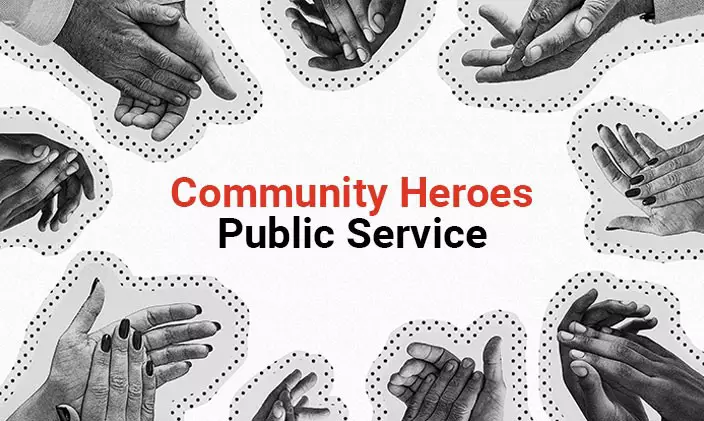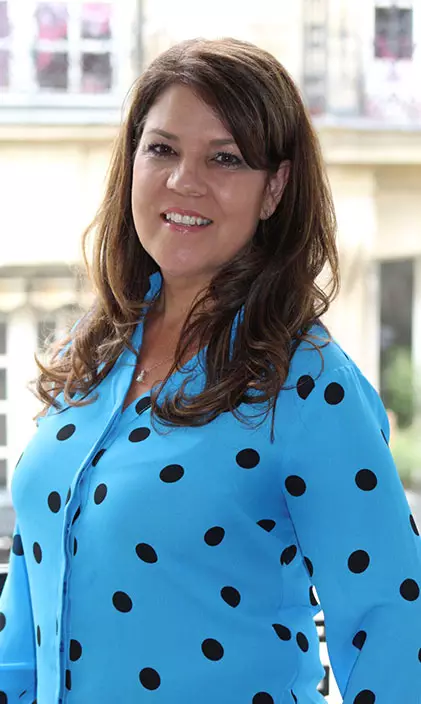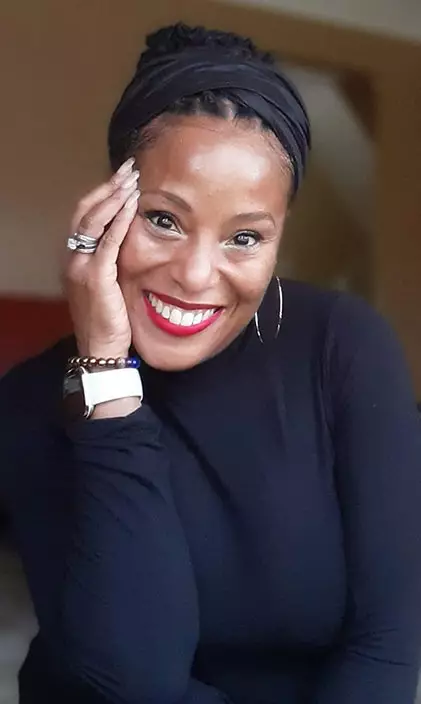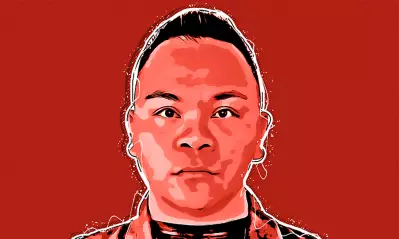Discover more stories in our Alumni Chronicles Magazine!
UOPX alumni leave positive mark on their communities through public service

By Laurie Davies
Political and public service is often unsung work, requiring thick skin, collaboration, compassion and skillfulness in brokering deals.
Two University of Phoenix alumni exemplify the spirit of what it means to be a community hero — building healthier communities through public service. Here are their stories.
Francie Palmer
Rancho Cucamonga, California
When she drives around Rancho Cucamonga, Francie Palmer (BSM, 2001) sees a performing arts venue, a park and a senior center that weren’t there when she started her tenure with the city.
“There’s no greater impact you can see in public service than what happens at your local government level,” she says.

Palmer joined the 175,000-person Southern California city as a marketing manager in 2002. By the time she left full-time employment 16 years later, she was communications manager for citywide communications. Her primary role was to promote the programs and services that the city provides to its residents.
Now living in northern Nevada, she still serves as a senior advisor for Rancho Cucamonga, focusing on Cucamonga Station, a multimodal transit hub for high-speed rail from Las Vegas to Los Angeles. It is anticipated to break ground in 2023 or 2024.
The ambitious project will add a new transportation district, an apartment complex and a zero-emissions, underground train that will transport riders to and from Ontario International Airport. The plan is projected to reduce carbon dioxide emissions by 400,000 tons annually by removing 3 million vehicles from the road, according to Brightline West.
For Palmer, guiding the messaging for a project of this magnitude — creating cohesive language for a team of business, environmental, economic and governmental partners — is the culmination of a career spent facilitating relationships. And she can’t imagine anywhere she’d rather do it.
Rancho Cucamonga is derived from a Native American word meaning “sandy place.” As a communicator, Palmer feels privileged to tell the story of how this once-sandy place has transformed into what she views as a premier Southern California city.
“Making a community better — making it a place people are proud to be a part of — nothing beats that,” she says.
Rancho Cucamonga City Manager John Gillison credits Palmer for having as much impact behind the scenes as she has had externally. A certified facilitator of the Core Strengths leadership training and strengths assessment, Palmer has led hundreds of city employees through the material and trained numerous others as facilitators, including Gillison.
“We use it as a common language internally now. It helps our teams understand how to work with each other,” he says.
He also credits Palmer with creating a robust communications team focused on branding, messaging, video and social channels.
“Had we not had someone like Francie, who is authentic, genuine, loyal and passionate about what she does and why she does it, I don’t think we would have come as far as fast,” Gillison says.
For her part, Palmer has stayed true to the roots of what prompted her to enter public service. “In local government, we’re creating opportunities for people to have experiences and memories that are going to last a lifetime,” she says.
For anyone looking to enter public service, Palmer says collaboration is key. “A collaborative spirit is really something you want. Everyone who comes to the table may not get everything they want, but if everyone feels like they’re part of the process and have a better understanding than they did when they walked in the door, that can be a win,” she says.
Palmer has never felt threatened by citizens who “express their enthusiasm loudly,” because that means there’s one more person becoming engaged in civic life.
“It’s amazing to see people become involved in how things work,” she says. “They start to feel as though they are a part of their community versus this is just where they live.”
Palmer has been honored for her efforts, named the 2017 Communicator of the Year by the California Association of Public Information Officials (CAPIO). In 2018, CAPIO awarded her the Paul B. Clark Lifetime Achievement Award.
Kelly Garrett
Lathrup Village, Michigan
More than 2,000 miles away, in a community on the outskirts of Detroit called Lathrup Village, MyKale (Kelly) Garrett (BSBA, 2006, MIS 2010) is quietly making history as the first African American mayor in the city
“I feel honored to have that distinction,” she says. “One of my goals was always to have where I live be a better place.”

Her educational path to politics wasn’t conventional. In fact, after three years of college, she dropped out and got a job with a Michigan phone company. She was leading a team of salespeople, but a work colleague pushed her to finish her undergraduate degree.
She not only finished her degree, but she went on to earn her Master of Information Systems from University of Phoenix. She had planned to go back into telecommunications, but then a life of public service called.
Learn more about the online MIS degree program at University of Phoenix!
She admits she now has the bug.
“As a public servant, you literally work for the people. You’re not there for yourself. You’re in your seat because other people believed you could champion them,” she says. It’s been both rewarding and challenging.
“I didn’t go to school to be a public servant. The things I’m championing, I lived,” she says, noting that her son, now deceased, lived with sickle cell anemia for 21 years. Fortunately, in the early days of his illness, Garrett was able to take earned, paid sick days. In the course of talking with other parents, however, she learned that not everyone had the opportunity to do what she did.
“I am appalled that people have to decide between taking care of sick children or keeping the lights on,” she says.
So, she rolled up her sleeves.
Garrett got involved with a group called Mothering Justice, a grassroots policy advocacy organization for mothers of color in America. She began advocating for a paid sick leave law, which has had an up and down journey in Michigan. “We’re working on it,” she says.

Tragically, she lost her son in October 2021. Her experience with watching her son suffer through sickle cell complications cultivated in her a quiet strength she never thought she had. This, combined with a more sophisticated political astuteness, has her poised to consider higher office. “I feel like I’m invincible now because the worst thing that could possibly have happened has happened,” she says.
“I’m not only a Phoenix — I’ve graduated from the University — but I also feel like the mythological creature, the phoenix. I’m still here, still working, still functioning,” she says.
Her success now, she believes, is rooted in her ability to look at people with more empathetic eyes. “Trauma and suffering changes people,” she says. “Now when I’m sitting in meetings and I’m being attacked, I’m looking at people with different vision, able to stop and think, ‘What’s inside of you that’s bothering you so much that you’re lashing out at me?’ It’s not for me to understand, but it’s for me to acknowledge.”
At 52, she sometimes feels like she peaked late in life. “If I graduated college in my 20s, I’d be so much farther along,” she says.
Then again, she realizes she wouldn’t be able to talk to women with conviction about how it’s never too late to start over.
“Every single day that you wake up, you have the opportunity to be a new person,” she says. “What lies ahead is something you just try to reach for.”



